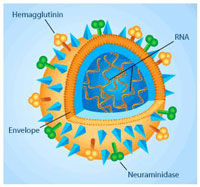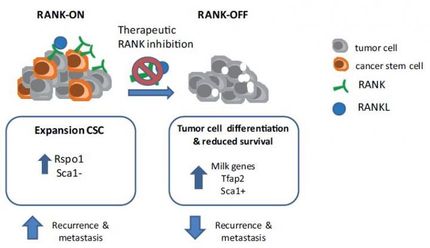New class of inhibitory compounds developed to aid melanoma treatments
A University of California, Irvine pharmacology researcher has helped create a class of inhibitory compounds that can strongly enhance the effect of anti-tumor drugs for melanoma.
In doing so, Daniele Piomelli, the Louise Turner Arnold Chair in the Neurosciences at UCI, and scientists at the Italian Institute of Technology identified how an enzyme called acid ceramidase can accelerate tumor growth in this deadly form of skin cancer.
In skin biopsies of stage 2 melanomas, they found that acid ceramidase is highly activated. This hyperactivity disrupts a normal cell process called apoptosis, or programmed cell death, which ensures the continued function and growth of normal cells. Without this process, mutated, cancerous cells are able to proliferate.
The complex processes that acid ceramidase mediates become unbalanced when this enzyme is hyperactive in melanoma cells. The Piomelli lab has been focused on developing drugs that restore balance in the cell life-death cycle by reducing acid ceramidase activity.
In The Journal of Biological Chemistry, Piomelli and colleagues report the success of a class of molecules that inhibit acid ceramidase. Using cell cultures of melanoma, they showed that these compounds make melanoma cells more prone to be killed. In other words, the compounds act like multipliers that boost the deadly effects of conventional anti-tumor agents.
While there is still much to be learned about the roles of acid ceramidase and how its inhibitors work, researchers believe that blocking this enzyme puts cancerous cells onto a path that can lead to apoptosis.
One feature of the new compounds is that they're built so that healthy tissue surrounding the melanoma can rapidly destroy them. This means that when they're applied directly on a skin tumor, the compounds cannot spread to other organs or tissue where they might cause unexpected harm.
"Melanoma is one of the most aggressive forms of human cancer, with very poor prognosis if not diagnosed at early stages," Piomelli said. "With further development, we see these inhibitors being incorporated into topical treatments such as creams that can become part of an aggressive melanoma treatment program."
Other news from the department science

Get the life science industry in your inbox
By submitting this form you agree that LUMITOS AG will send you the newsletter(s) selected above by email. Your data will not be passed on to third parties. Your data will be stored and processed in accordance with our data protection regulations. LUMITOS may contact you by email for the purpose of advertising or market and opinion surveys. You can revoke your consent at any time without giving reasons to LUMITOS AG, Ernst-Augustin-Str. 2, 12489 Berlin, Germany or by e-mail at revoke@lumitos.com with effect for the future. In addition, each email contains a link to unsubscribe from the corresponding newsletter.

















































